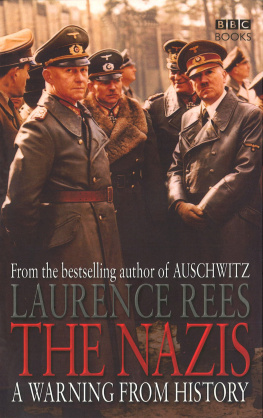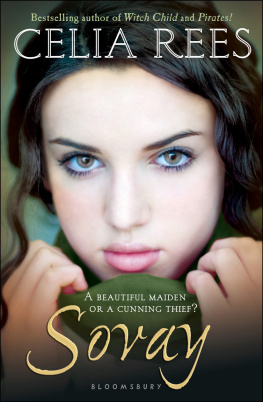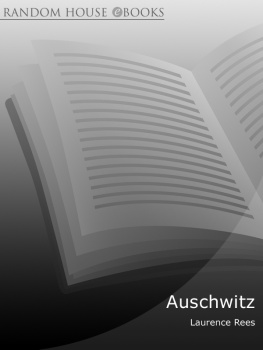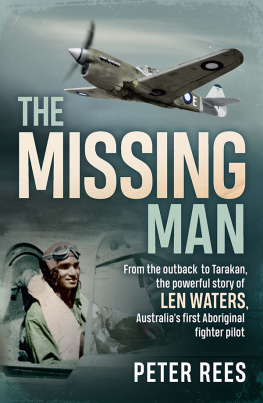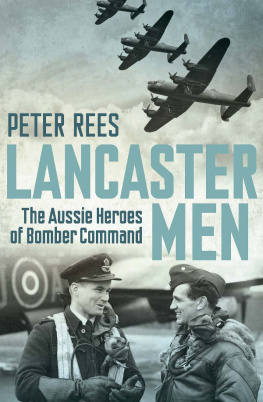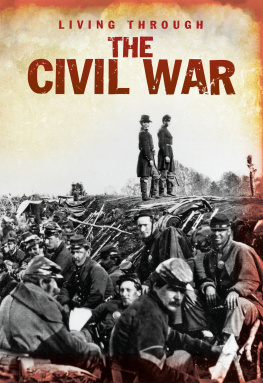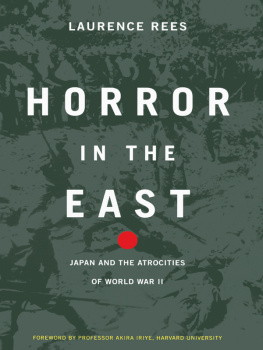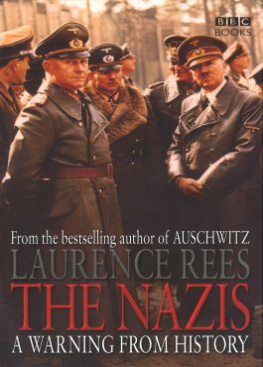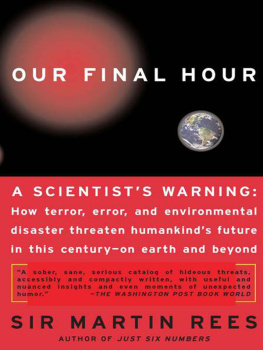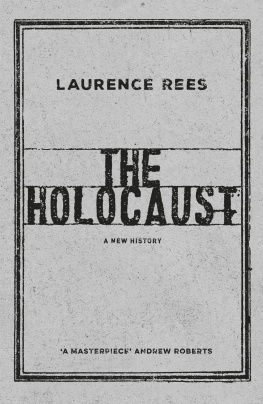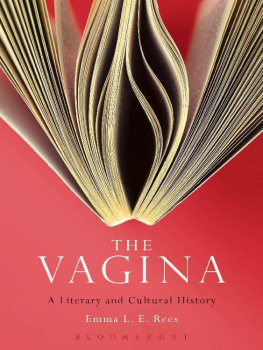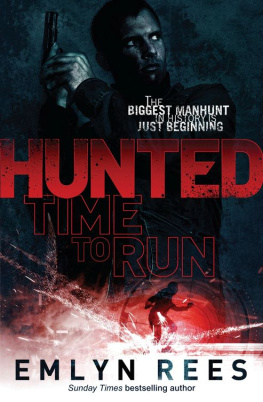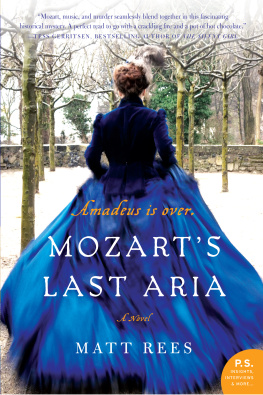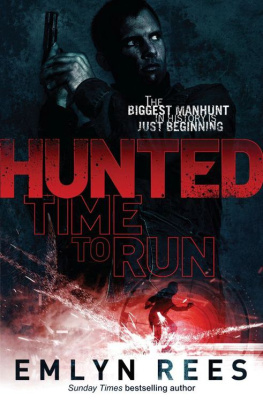Rees - The Nazis: a Warning From History
Here you can read online Rees - The Nazis: a Warning From History full text of the book (entire story) in english for free. Download pdf and epub, get meaning, cover and reviews about this ebook. City: Germany, year: 2012;2002, publisher: Random House;BBC Digital, genre: Politics. Description of the work, (preface) as well as reviews are available. Best literature library LitArk.com created for fans of good reading and offers a wide selection of genres:
Romance novel
Science fiction
Adventure
Detective
Science
History
Home and family
Prose
Art
Politics
Computer
Non-fiction
Religion
Business
Children
Humor
Choose a favorite category and find really read worthwhile books. Enjoy immersion in the world of imagination, feel the emotions of the characters or learn something new for yourself, make an fascinating discovery.
The Nazis: a Warning From History: summary, description and annotation
We offer to read an annotation, description, summary or preface (depends on what the author of the book "The Nazis: a Warning From History" wrote himself). If you haven't found the necessary information about the book — write in the comments, we will try to find it.
The Nazis: a Warning From History — read online for free the complete book (whole text) full work
Below is the text of the book, divided by pages. System saving the place of the last page read, allows you to conveniently read the book "The Nazis: a Warning From History" online for free, without having to search again every time where you left off. Put a bookmark, and you can go to the page where you finished reading at any time.
Font size:
Interval:
Bookmark:
CONTENTS
Following the success of Rees bestselling Auschwitz, this substantially revised and updated edition of The Nazis A Warning from History tells the powerfully gripping story of the rise and fall of the Third Reich.
During a 16-year period, acclaimed author and documentary-maker Laurence Rees met and interviewed a large number of former Nazis, and his unique insights into the Nazi psyche and the Second World War received enormous praise.
At the heart of the book lies compelling eyewitness accounts of life under Adolf Hitler, spoken through the words of those who experienced the Nazi regime at every level of society. An extensive new section on the Nazi/Soviet war (previously published in Rees War of the Century) provides a chilling insight into Nazi mentality during the most bloody conflict in history.
Described as one of the greatest documentary series of all times The Nazis A Warning from History won a host of awards, including a BAFTA and an International Documentary Award.
Laurence Rees is the writer and producer of the major BBC television documentary series World War II: Behind Closed Doors, War of the Century, Horror in the East and Auschwitz: The Nazis and the Final Solution. He won the British Book Award for History Book of the Year in 2006 for his international bestseller Auschwitz: The Nazis and the Final Solution.
Rees career as a writer and filmmaker, focusing on the Nazis and World War II, stretched back nearly 20 years. His body of work has won him several awards, including a BAFTA and a Grierson Award. Rees was educated at Solihull School and Oxford University and is the former Creative Director of BBC TV History programmes.

For Oliver, Camilla and Benedict
If you gaze for long into an abyss, the abyss gazes also into you.
FRIEDRICH NIETZSCHE , Jenseits von Gut und Bse
ITS ONLY BY looking back that life takes on a pattern. Thats as true of our own individual lives as it is of the great events of history. I never thought, for example, when I embarked on Nazis: A Warning from History in the early 1990s that it would be the start of such a long journey. For it was only whilst making Warning from History that I fully realised the wealth of new historical material that the fall of the Berlin Wall had just made available in Eastern Europe. It was that, plus the growing realization that it was almost impossible to overemphasize the importance of the Hitler/Stalin war in any attempt to understand the mentality of the Nazis, that led me to move straight onto another project. I spent several more years writing, producing and directing War of the Century about the epic struggle between Nazism and Communism.
The pattern of all this work seems clear to me only now, in a way that it never was at the time, which is why Im so grateful to BBC Books for reissuing here, not just the original Nazis: A Warning from History, but for allowing me to incorporate within it the majority of the War of the Century book. For I think the material in War of the Century particularly the chapter A Different Kind of War vividly demonstrates the practical consequences of Nazism. Certainly travelling around Russia, Belarus and the Ukraine, and hearing stories about the Nazi occupation, allowed me personally to gain a greater insight into the essential nature of Hitlers world view: a bleak landscape where pity is outlawed and life is reduced to a Darwinian struggle in which the weak deserve to suffer because it is their destiny.
Of course there are potential problems in slotting one book inside another. Some are easy to rectify the danger of repetition, for example and Ive done my best to re-edit the text to avoid going over the same ground twice. Ive also updated the content in places where my thinking has changed since writing the original words thats particularly the case with the section on the origins of the Nazis Final Solution. But there remains the real danger that, by focusing chiefly on the War in the East and hearing the extensive stories of Russian veterans, an impression is created that somehow the war in the West didnt matter. So I need to emphasize here that nothing could be further from my own belief. I grew up on the heroic stories of the sacrifice of British and American servicemen during World War II. My father flew in the RAF and my uncle was torpedoed and killed whilst serving on the Atlantic convoys. It was because I wanted to see the full story of the Western Allies fight against Nazism told to the widest possible audience that I devised television series such as Battle of the Atlantic and D-Day to Berlin, and then editorially oversaw their construction.
But the book you are holding in your hand is about something different. What I have tried to do here is to penetrate as deeply as I can the essential nature of Nazism. Its not a history of World War II or an account of all the significant military decisions of the conflict, but an attempt to see how far it is possible to understand why the Germans and their allies did what they did. It is in pursuit of that aim and that aim alone that I thought it important to include the material from War of the Century.
As I look back on this work now, I also see another aspect of it that I didnt fully recognize at the time. These books, and the television series that went with them, were based on approximately 100 unique interviews many with former members of the Nazi Party. I had the chance to meet and question people who adored Hitler, worked for Himmler, fought on the Eastern Front and committed atrocities whilst members of the SS. This is now an opportunity that is no longer available to anyone else who comes after me for the simple reason that most of the people we interviewed have since died. In the heat of the production process, focused as I was on a forthcoming transmission or publication date, it didnt really occur to me that we were making something of value for future generations.
Of course, as the number of survivors diminishes, attitudes to Nazism and World War II will also change. For my generation the only way of understanding the world we grew up in was to know what happened during World War II: a divided Germany, the Cold War, the Soviet domination of Eastern Europe the consequences of the conflict were all around us. But for todays schoolchildren it is all very different. I remember the daughter of a friend asking me, when she was seven years old: What came first, Adolf Hitler or the Battle of Hastings? To her generation Nazism is just another bit of history, part of an enormous jigsaw that has to be fitted in along with the Romans, the Normans and Henry VIII.
You wont be surprised to hear, I guess, that I dont think that the Third Reich is just another bit of history. I believe that a study of Nazism still offers us a level of insight into the human condition that is different from the benefits of understanding some other periods of the past. To start with, obviously, the Nazis walked the earth not so very long ago. They came from a civilized country at a time when, in the wake of World War I, a whole series of positive values and beliefs about democracy and human rights were prevalent in Europe. They smashed all that away, having gained power as a result of a series of elections that demonstrated that a majority of Germans in voting for either the Communists or the Nazis had chosen to vote out democracy. Given that today there are so many fledgling democracies in the world, its a stark warning.
Next pageFont size:
Interval:
Bookmark:
Similar books «The Nazis: a Warning From History»
Look at similar books to The Nazis: a Warning From History. We have selected literature similar in name and meaning in the hope of providing readers with more options to find new, interesting, not yet read works.
Discussion, reviews of the book The Nazis: a Warning From History and just readers' own opinions. Leave your comments, write what you think about the work, its meaning or the main characters. Specify what exactly you liked and what you didn't like, and why you think so.

